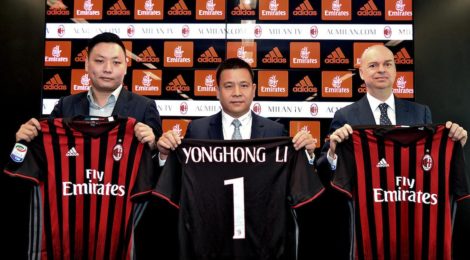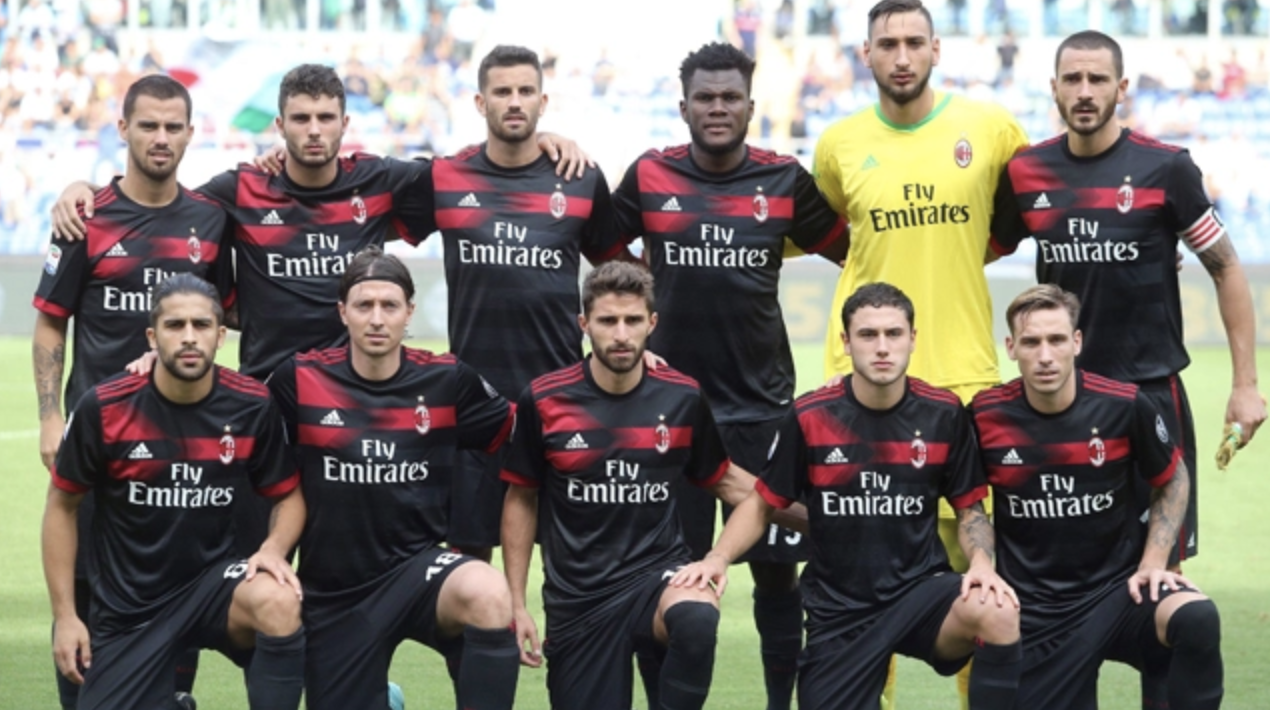
Chinese acquisition of A.C. Milan. Was it a good deal after all?
Former Italian Prime Minister Silvio Berlusconi finalized the sale of A.C. Milan in April to a Chinese-led consortium headed by Li Yonghong in a €740 million deal, the biggest Chinese investment in a European soccer club. Part of the financing came from Elliot Management with repayment of €303 million plus interest estimated at €47 million (11.5%) due by October 2018. Default on the debt and Elliot Management would assume ownership of the team.
Mr. Li had plenty of reasons to buy A.C Milan. President Xi had shown his love for football and wanted China to be a superpower in the sport by 2050. However, A.C. Milan, once home to some of football’s biggest talents, has not won an Italian league for six years or a European title for 10. Just a few months after the purchase, Forbes valued Milan at €665 million, making the team the 13th most valuable soccer team in the world. In 2007 Forbes listed A.C. Milan as the 5th most valuable soccer club in the world at €684 million.

AC Milan spent €230 million on players during the latest transfer season, behind only Paris St. Germain and Manchester City. A.C. Milan is competing in Europe’s second tier cup competition and lies 11th in the domestic league.
The sale of A.C. Milan to Li took far longer than expected to complete as Beijing enforced rules on non-strategic foreign acquisitions. Chinese spending on soccer totalled €1.5 billion over the past five years. The Chinese government has limited overseas investments in areas such as hotels, cinemas, the entertainment industry, real estate and sports clubs. It also bans outright investments in enterprises related to gambling and the sex industry. At the same time, the government encourages companies to spend money in projects related to the “Belt and Road” initiave, President Xi Jinping’s signature foreign policy strategy that seeks to link China with other parts of Asia and eastern Europe through multibillion-dollar investments in ports, highways, railways, power plants and other infrastructure.
Highbridge Capital Management, owned by JP Morgan, will now review the A.C. Milan business plan in detail and undertake any other due diligence that may be required. If the five-year deal is consummated, it would be worth €400 million with the ownership group, Rossoneri Sport Investment responsible for €250 million and the club entity Milan on the hook for €150 million. If the Business Plan targets are met, then another €100 million could be made available.
The A.C. Milan financial statements for the 2016 year recorded a loss of €70 million, which brought Milan’s cumulative loss to nearly €500 million over the last 11 years. The first six months of 2017 showed a slight improvement but the loss still amounted to €32.6 million.
Mr. Li had never been named to one of China’s lists of the country’s richest people and the mining empire he described to Italian soccer officials was hardly known even in mining circles. Less than six months after buying the loss-making Italian club, the Chinese owner is looking for one or more investors to share financial burden. As reported by an article published on the New York Times, Chinese corporate records show that someone else owns his mining empire. Chinese records also show a series of business disputes between Mr. Li and Chinese regulators. According to Chinese corporate records, the mines Mr. Li told A.C. Milan he controlled have been owned by four different people since last year.
It’s unclear how much Mr. Li’s wealth might help the club address its troubles. Mr. Li told A.C. Milan that his holdings included phosphate mining operations in the city of Fuquan in Guizhou Province but the mines are owned by Guangdong Lion Asset Management, an investment company. Guangdong Lion has had an unclear ownership record over the past two years, involving a number of people with similar family names. In August, Guangdong Lion offices were closed, with an eviction notice on the door.
Following Chinese concerns about deals abroad, China’s purchases of soccer teams is likely to slow down considerably in the immediate future.




